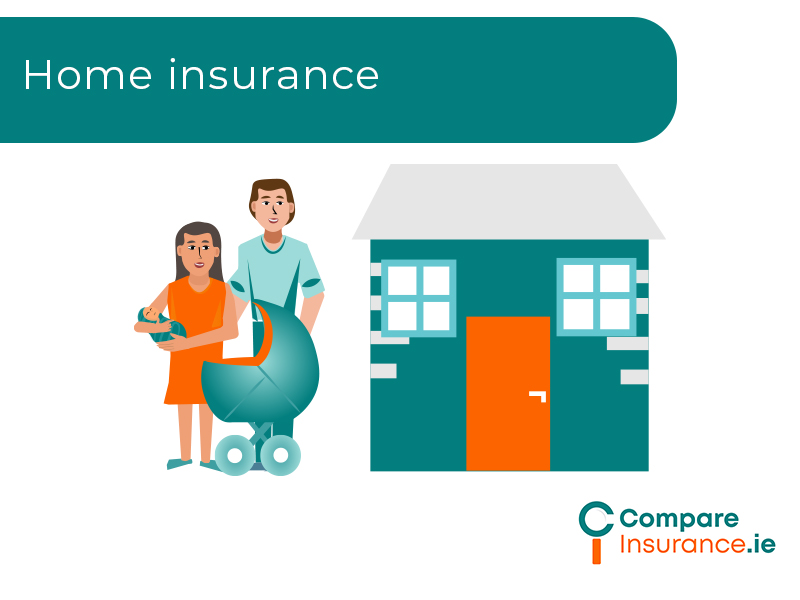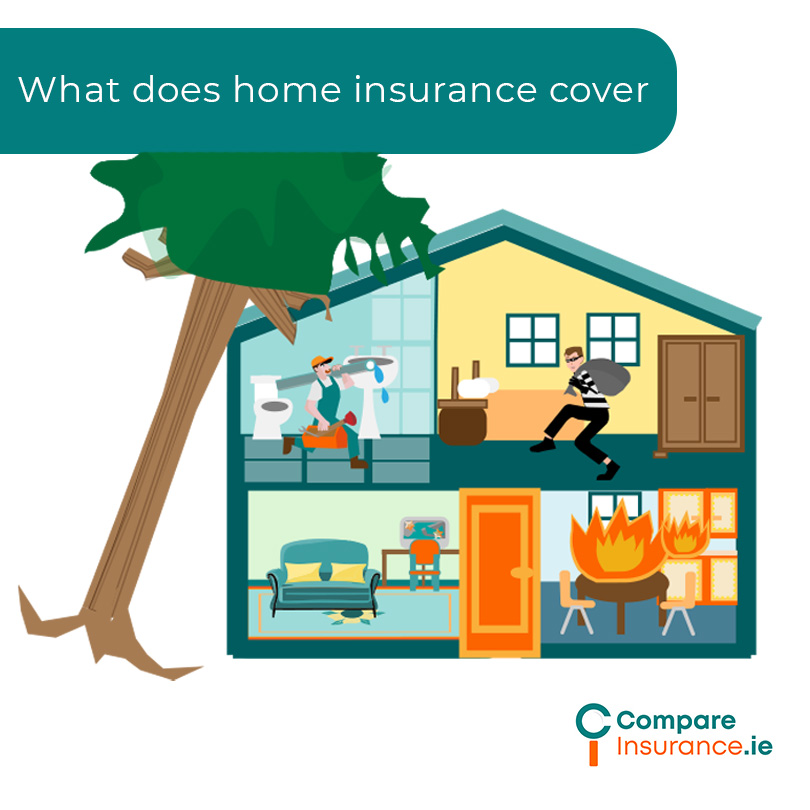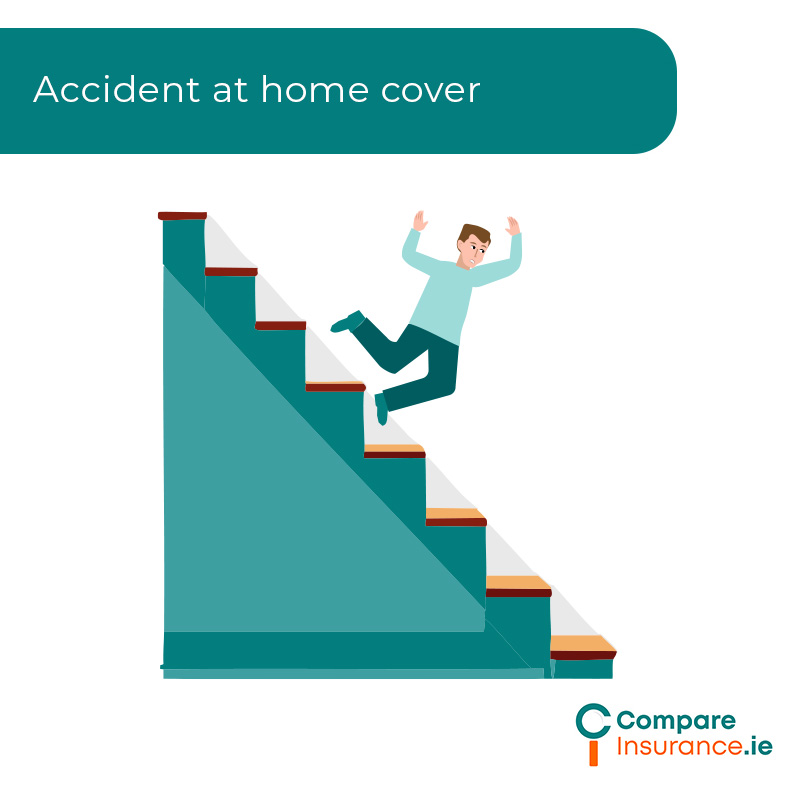Home insurance protects your home and its belongings against damages in the event of unforeseen circumstances.
Repairs to your home and replacing your home’s contents can be costly, so it is extremely important to be fully covered in the event of unexpected losses and damages.
Speak to Compare Insurance today to receive the best home insurance cover on the Irish market.

Types of home insurance
What does home insurance cover?







